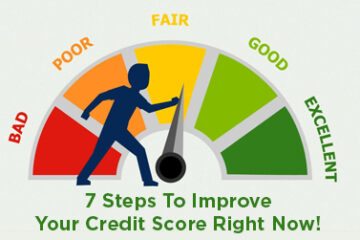Unlocking Your Path to Freedom and Wealth
Are you ready to achieve financial independence? This guide will help you understand what it means and how to get there. From smart budgeting to wise investments, we’ll cover everything you need to know.
Understanding Financial Independence: The Basics
Financial independence means having sufficient income to live your desired lifestyle without being reliant on active employment. It’s about making your money work for you instead of constantly exchanging your time for money. This concept can lead to greater savings, reduced stress about finances, and enhanced freedom in life choices.
Key Components of Financial Independence
The journey to financial independence often includes various components such as saving, investing, and budgeting. Knowing how to manage your money is crucial. Start by tracking your income and expenses. This allows you to see where your money goes and helps you identify areas where you can cut back.
The Importance of Budgeting
A budget is a plan for how to spend your money. It helps you manage your finances and pay off debts while saving for your financial goals. Setting up a budget involves categorizing your expenses into needs and wants, which helps prioritize your spending.
Investing for Your Future
Investing is a key strategy in achieving financial independence. It allows your money to grow over time through various financial vehicles such as stocks, bonds, and real estate. The earlier you begin investing, the more you can benefit from compound interest.
Benefits of Achieving Financial Independence
Achieving financial independence can lead to many benefits, including the freedom to pursue your passions, travel more, or even retire early. Freeing yourself from the constraints of a paycheck can significantly enhance your quality of life.
Strategies to Achieve Financial Independence

To achieve financial independence, you need solid strategies that work for your lifestyle and goals. Here are some actionable tactics you can use:
Create a Budget
A budget is a powerful tool to help you track and control your spending. Start by listing your income and categorizing your expenses into fixed (like rent) and variable (like dining out). Then, set limits on your discretionary spending to ensure you save more.
Build an Emergency Fund
Having an emergency fund is crucial for financial security. Aim to save three to six months’ worth of living expenses in a high-yield savings account. This fund can help you avoid debt in case of unexpected events.
Start Investing Early
Investing your money can help it grow. Begin with retirement accounts like a 401(k) or an IRA. Even small amounts can add up over time, thanks to compound interest. The sooner you start, the more your money can work for you.
Increase Your Income
Look for ways to boost your income, whether through a side hustle, freelance work, or further education. Enhancing your skills can lead to promotions or higher-paying jobs. Use the extra income to pay down debt or increase your investments.
By implementing these strategies, you put yourself on the path to financial independence, increasing your chances to live the life you desire.
The Role of Investment in Financial Independence
Investing plays a pivotal role in achieving financial independence. It allows your money to grow more significantly than simply saving alone. Here are key aspects of how investments contribute to building wealth:
Understanding Different Types of Investments
There are several types of investments that can help you on your path to financial independence. Common options include stocks, bonds, mutual funds, and real estate. Each has its own risk and reward profile, so it’s essential to understand which aligns with your financial goals.
The Power of Compounding
One of the most powerful concepts in investing is compounding. When you earn returns on your investments, those returns can also start earning returns. Over time, this can lead to exponential growth of your wealth, making compounding a key factor in achieving financial independence.
Diversification: Spreading Risk
Diversification is critical in investing. By spreading your money across various assets, you reduce the risk of losing it all if one investment fails. A well-diversified portfolio can help stabilize your investment returns over time, which is vital for steady growth.
Setting Long-Term Goals
Investing is not just about quick wins; it’s about planning for the future. Setting long-term goals for your investments can guide your strategy. Consider when you want to achieve financial independence and how much money you will need to get there.
By actively engaging in investing, you create opportunities for your money to work for you, driving you closer to the goal of financial freedom and wealth.
Common Mistakes on the Path to Financial Independence

While striving for financial independence, it’s easy to make mistakes that can set you back. Here are some common pitfalls to avoid:
Neglecting a Budget
Many people skip creating a budget, thinking it’s too restrictive. However, a budget is essential to understanding your income and expenses. Without it, you may overspend and miss savings opportunities.
Ignoring Emergency Savings
Failing to establish an emergency fund can lead to financial disasters. If unexpected costs arise, you might need to rely on credit cards or loans, causing debt to spiral and delaying your path to independence.
Focusing Solely on Saving
While saving is crucial, it isn’t enough. Simply saving money without investing it can hinder your financial growth. Make sure to allocate a portion of your savings to investments that can grow over time.
Chasing Trends
Some individuals fall into the trap of chasing investment trends, buying high and selling low out of fear or greed. Stick to a well-researched investment strategy insteadof following the crowd.
By being aware of these mistakes, you can navigate your journey towards financial independence more effectively and avoid unnecessary setbacks.
Achieving Financial Independence: Your Pathway to Freedom
In summary, becoming financially independent is a journey that involves understanding its basics, implementing effective strategies, recognizing the crucial role of investment, and avoiding common pitfalls.
By creating a budget, building an emergency fund, and investing wisely, you can set yourself on the road to financial freedom. Remember, being aware of mistakes and learning from them will only strengthen your path.
Take these insights to heart and begin crafting your roadmap to financial independence, unlocking a future of freedom and wealth.




